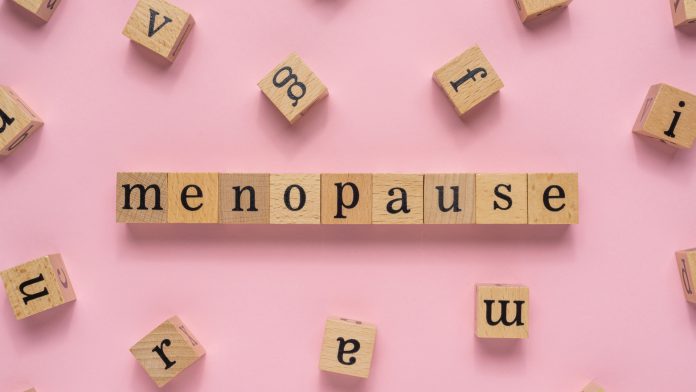
Awareness and education around symptoms of menopause are paramount for ensuring patients receive accurate diagnosis and treatment. HEQ spoke to Dr Haitham Hamoda, consultant gynaecologist and chair of the British Menopause Society to discuss this further.
Symptoms of menopause are estimated to affect over 75% of women, the severity of which can vary from person to person. Not only is it important for healthcare practitioners to have a basic understanding of the symptoms that perimenopause and menopause can present, but awareness among the public is also paramount so they are able to seek the appropriate care and understand the treatment choices available to them.
In recent years, negative discourse, and misinformation around menopause treatment, as well as a lack of menopause education and training for healthcare professionals have been cited as key factors negatively impacting women’s experience of this natural life course. One organisation seeking to improve this is the British Menopause Society (BMS). Established in 1989, the charity supports both patients and healthcare professionals working in all areas of productive health through the dissemination of guidance, training, and educational resources. As part of its vision to make high-quality menopause care accessible to all, the BMS advocates that there be nominated healthcare professionals with a special interest and knowledge in menopause in every primary care team and that practitioners have a basic understanding of the menopause so that they can suitably signpost patients for advice, support, and treatment.
To find out more about the organisation and discuss some of the key challenges in menopause care, HEQ spoke to consultant gynaecologists and elective chair of the BMS, Dr Haitham Hamoda.
The BMS was established in 1989, how would you say the discourse around and understanding of menopause and shifted in that time?
Over the years, there have been many studies that have shown the effects of menopause on health, as well as the benefits of hormone replacement therapy (HRT). You could say there was a progressive approach until the early 2000s. However, during the 90s, questions started being raised around the effects of oestrogen deficiency on bone and cardiovascular health, and if replacement hormones could benefit or hinder that. The long-term Women’s Health Initiative (WHI) study in the 1990s was designed to address that question. Essentially, it was a prevention trial for asymptomatic woman to decipher the risk of developing chronic health issues in midlife and how that risk was impacted by HRT. The findings were first reported in 2002 and were interpreted in a very negative way. It was generally concluded that HRT could do far more harm than good. The subsequent Million Women Study (MWS) in 2003, which looked at the risk of breast cancer and other health issues in HRT users compared with non-users, did little to help the profile for HRT. The MWS had many shortcomings and personally, I would say there were many methodological limitations that would make it difficult to draw meaningful conclusions. One of the main issues with the WHI was not necessarily the findings, it was how the findings were presented, projected, and interpreted, particularly in the media, which caused a lot of negativity. We still see the negative ramifications of that today.
Equally, the WHI was a huge, randomised study, the scale of which we may never see again, and I would advise anyone to pick out the positives and important information from that study where you can. For instance, the data on bone health is a really important aspect that sadly does not get talked about an awful lot and yet it showed the benefits of oestrogen in reducing fractures and osteoporosis diagnosis. For many women who take HRT, the benefits far outweigh the risks and have helped women to manage symptoms and enjoy a better quality of life as a result. We need to try and relay a more positive message because there has been so much negativity around menopause and on the negative aspects of HRT, which really need to be taken in context. For most people, the benefits of HRT outweigh the small risks that come with the intake.
The 2015 NICE guidance, which looked at the evidence from those earlier studies in a calmer way, concluded that there are still lots of benefits to HRT and they should be considered in individualisation, which, you could argue, is what should have happened initially. Gradually, thanks to new guidance, we are beginning to see a change in direction, to look at things in an individualised way.
What are the most common symptoms that women going through perimenopause and menopause will experience and what percentage experience severe symptoms?
The majority of women (around 75%) will experience symptoms and 25% would describe their symptoms of menopause as severe. A proportion of women may not experience symptoms. It is relevant to put it in a balanced way by saying you are likely to experience symptoms, though you may not, and a proportion of women may experience symptoms that they find to be more troublesome and significant.
More than 70% of women will experience hot flushes and night sweats and will attribute these symptoms to perimenopause or menopause. Women can also experience symptoms that they may not initially attribute to menopause, and these can include changes in mood, anxiety, low energy, fatigue, forgetfulness, brain fog and even joint aches and stiffness. The latter can often be interpreted as a natural part of ageing as opposed to the result of oestrogen deficiency. Quite a significant proportion of women (45%) will have urogenital symptoms such as vaginal dryness, discomfort during intercourse and urinary frequency and likewise, many will experience low sexual drive and low libido after menopause.
Symptoms of menopause can fluctuate and have varying durations, but the average duration is seven years, though one in three women are estimated to experience these longer-term.
Given the variety of symptoms of menopause, what benefits can hormone replacement therapy offer?
When you look at diagnosis, symptoms of menopause are not necessarily specific. Like many things, if you are working long hours, and you go to bed late and get little sleep, you are going to be tired the next day. This can have a multifactorial effect on your health, potentially impacting your mood, and feeling of fatigue, among other things. However, often, a significant portion of these symptoms are related to hormone deficiency and there is benefit in treatment.
A big part of managing menopausal symptoms is awareness. It is hugely beneficial for women to understand what is going on, what the impact of menopause is, and what their treatment choices are. When we talk about choices of management, it is not just HRT, though HRT is probably the most effective intervention for managing symptoms of menopause. HRT is one intervention with one set of risks, but like any medical treatment, you modify what you give depending on an individual’s background and medical history. Then of course, as a result, the risk profile can vary depending on how you give the preparation. Oestrogen can be given by tablet and through the skin via a gel, patch or spray preparations. There are also different types of progesterone preparations including natural progesterone tablets, synthetic progesterone progestogens in a patch preparation or that can be given as an intrauterine system (IUS) implant.
Can you outline any protective or preventative lifestyle measures as well as dietary interventions that help to ease symptoms?
Optimising lifestyle factors such as eating a healthy, balanced diet, exercising, not smoking, and reducing alcohol intake can all have beneficial effects. There are many studies that show a healthy lifestyle can have a positive effect on symptoms of menopause. In parallel, we can then consider other options like HRT as well as non-hormonal treatments. For many, especially those who have tried lifestyle modifications, I would say treatment is a reasonable next step.

We need to try and relay a more positive message because there has been so much negativity around menopause and on the negative aspects of HRT, which really need to be taken in context.
We often hear that one of the key challenges surrounding menopause is accurate diagnosis and treatment prescribing due, in part, to the variation and severity of symptoms as well as the lack of understanding and education around menopause and HRT. How could the public policy be updated to better support GPs but also ensure the system is not failing women?
I think awareness is the key and of course, this is a key focus for us at the British Menopause Society; we try to cater for all needs. Of course, in an ideal world, everyone would be up to date and fully trained in menopause but in reality, healthcare professionals deal with many different areas of care and so while it would be nice, we cannot expect everyone to become a menopause specialist. For patients, it might be that no one in their local surgery has expertise in menopause and in which case they will need to look for a specialist clinic. The ‘Find a Specialist’ tab on the British Menopause Society website can help patients find support in their area.
Furthermore, not everyone is going to present in a typical way, but the majority will. If GPs have a basic understanding of menopause and the principles of treatment, then that will be sufficient for supporting the majority of patients. The NICE guidance and the BMS guidance very clearly states what the common symptoms are, what to look out for in typical age groups and the importance of steering away from antidepressants as a first-line treatment.
For GPs who see a patient in their mid-40s presenting symptoms of menopause, the likelihood is that they are experiencing perimenopause, and menopause, rather than long-standing background depression. Even if there is long-standing background depression or anxiety, for most women, when it gets worse in the perimenopause it is due to the drop in hormones. In that scenario, for most women, HRT would be the answer rather than antidepressants.
There is a lot of well-intended interest in this area but there is lots of misinformation out there so access to accurate information is important, and equally, individualisation is key in this process.

A big part of managing menopausal symptoms is awareness. It is hugely beneficial for women to understand what is going on, what the impact of menopause is, and what their treatment choices are.
For patients making an appointment to see their GP to discuss symptoms that could be related to menopause, how can they ensure they are presenting their GP with the most accurate and detailed information for the symptoms they are experiencing?
If you are noticing symptoms of menopause such as hot flushes, night sweats or changes in mood, anxiety, or concentration, note these down. It is common that these symptoms can fluctuate, especially in perimenopause, because perimenopause is a period of time building up to menopause. The typical picture would be that you will start getting these symptoms and, as time goes by, they will become more frequent, and as periods become less regular, they become more prominent.
5% of women can experience menopause between 40 and 45, 1% before 40, so I would say anyone who has a suspicion at any age should have a discussion. If we talk about the bulk of the population, certainly from 45 onwards, anyone who feels they do not have the same level of energy, feels a bit withdrawn, is experiencing sleep or memory changes, keep in mind that these may well be related to that transition.
Another recommendation would be to have a look on the British Menopause Society website where you will find patient videos, the ‘Menopause Explained’ series, factsheets as well as the ‘Find a Specialist’ tool which will tell you where your nearest menopause specialist clinic is located in your area. Since its establishment in 1989, the British Menopause Society has focused on education, training, and awareness to support anyone and everyone who deals with menopause and post-reproductive health. We now have in excess of 1500 members, more than half are in primary care, but also include those working in secondary care as well as pharmacists and allied healthcare professionals. Likewise, there is the patient arm of the society too – Woman’s Health Concern (WHC) – which has a range of helpful factsheets and information available to the public.
Dr Haitham Hamoda
Consultant Gynaecologist and Subspecialist in Reproductive Medicine and Surgery
British Menopause Society
thebms.org.uk
Women’s Health Concern (WHC)
www.womens-health-concern.org
https://twitter.com/BrMenopauseSoc
https://www.youtube.com/channel/UCz9m2gNQgI-2QCawAzgWC7w
This article is from issue 21 of Health Europa Quarterly. Click here to get your free subscription today.









